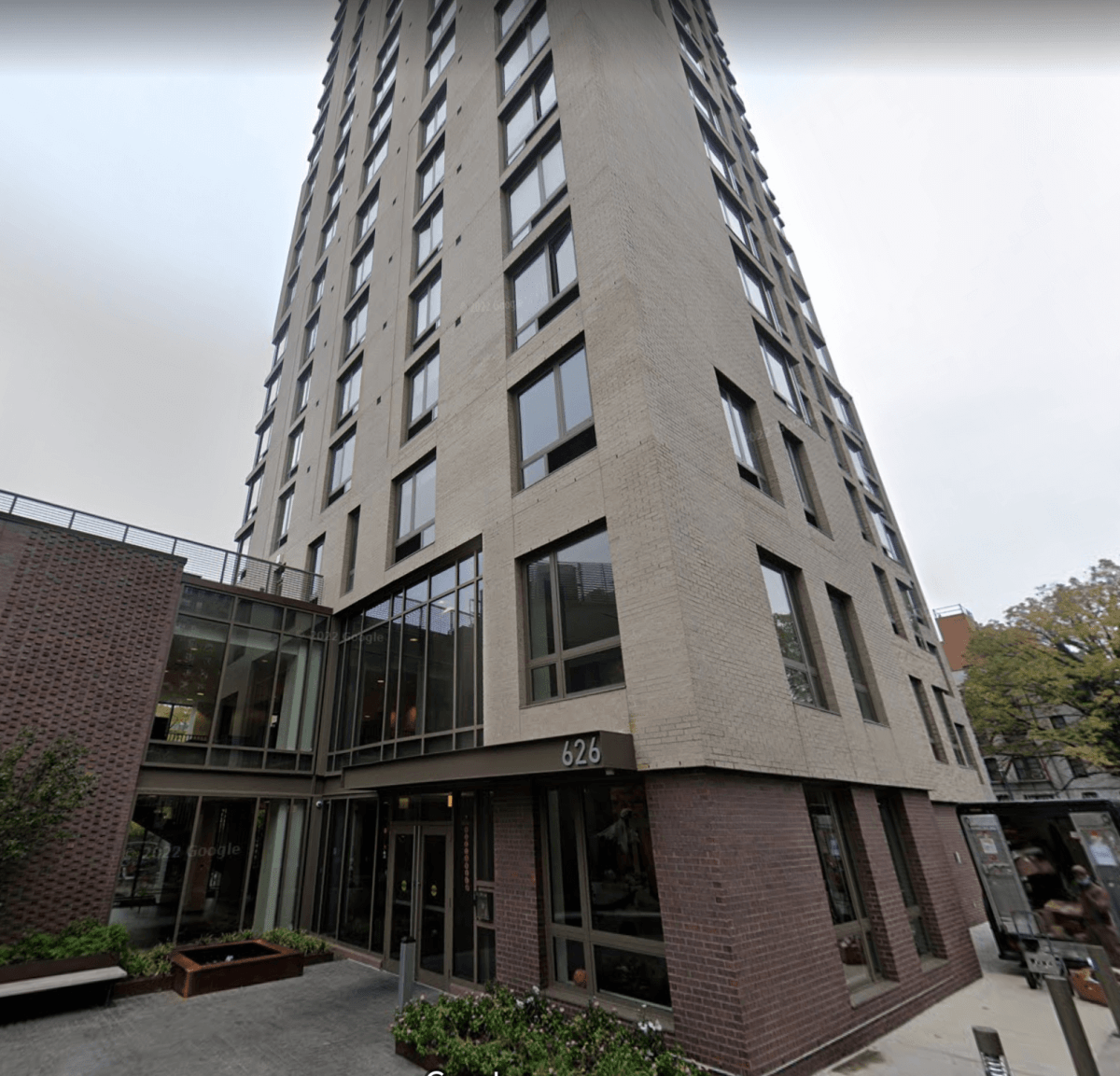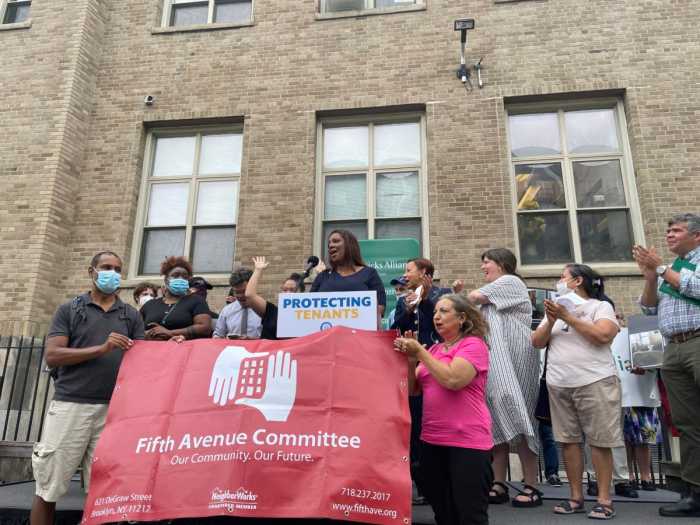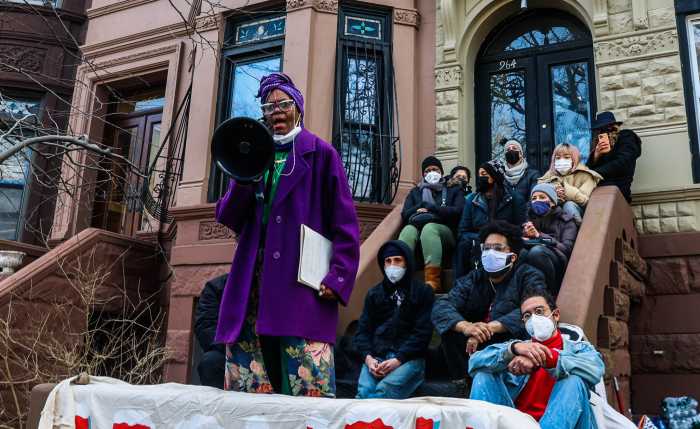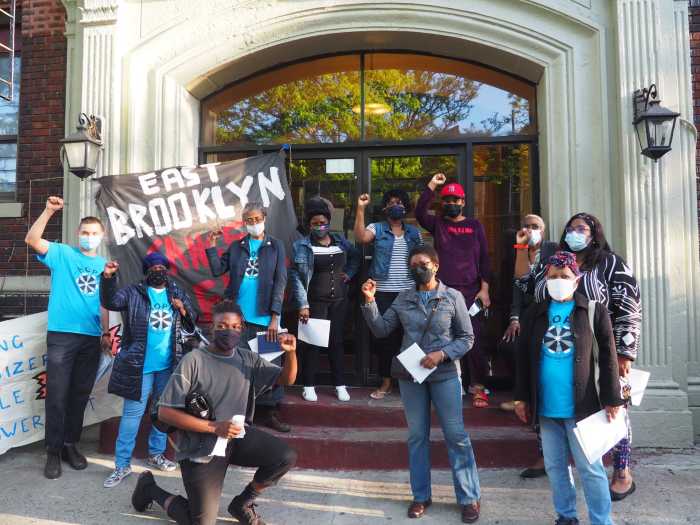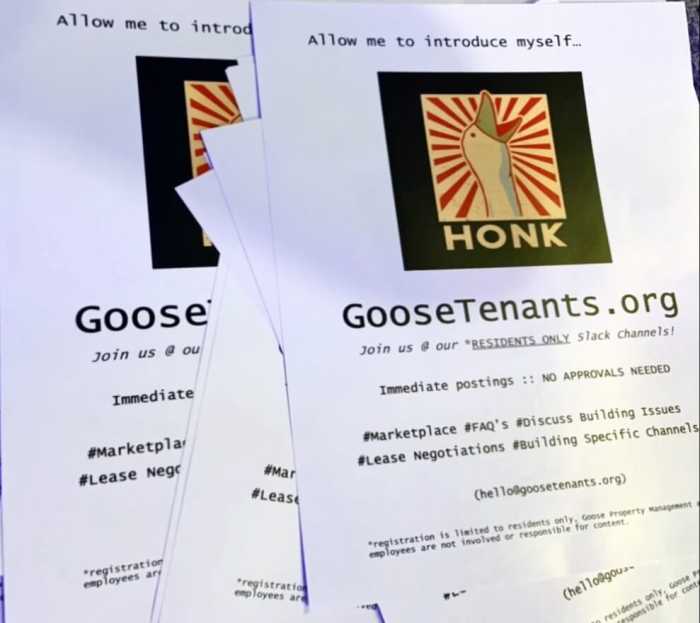Tenants of a Prospect Lefferts Gardens apartment building have filed a class action lawsuit against a real estate company for allegedly defrauding them by illegally raising rents and abusing the 421-a tax incentive program.
National housing watchdog group, Housing Rights Initiative, led the investigation into Hudson CBD Flatbush LLC which, it claims, received 421-a tax benefits worth millions of dollars for its building at 626 Flatbush Ave.
The 421-a program is a partial tax exemption that lowers property taxes and grants generous tax breaks to property developers who agree to reserve 100% of the units as rent stabilized, thus limiting the amount they could increase rent by.
Four tenants filed the class action lawsuit Thursday against Hudson CBD Flatbush LLC, alleging that it circumvented the states’ rent stabilization laws by “systematically utilizing rent concessions to register rents of the apartments at inflated and illegal amounts, while maximizing subsequent rent increases.”
Tenants in the case claim they entered into leases which misrepresented the amount of rent that the property owner was legally permitted to charge — which the landlord did by offering many of the first-occupying tenants a “rent concession,” which provided for “free” rent of a month or more.
While doing that, the landlord submitted, with the Division of Housing and Community Renewal, the rent paid after the “free” period — so, rent appeared to be, on paper, higher than what tenants effectively paid.
If they had simply taken the average of the total amount paid, over a 12-month lease, for example, then the rent-per-month would have been lower.
That allowed subsequent rents to be raised (by the allowed legal percent) based on the higher number. In reality, the “free” month of rent should have been factored in, which would have made any rent increases based on the lower number.
“Our housing enforcement agency has a choice, it can continue to do what it’s been doing, which is effectively nothing. Or it can start doing what we’ve been doing and enforcing the damn law,” said Aaron Carr, Founder and Executive Director of Housing Rights Initiative.
The watchdog estimates that thousands of former and current tenants of the buildings are entitled to tens of millions of dollars in rent refunds.
Legally, tenants being overcharged on rent are entitled to properly stabilized leases, rent refunds and rent reduction.
This is not the first controversy surrounded the building at 626 Flatbush Ave., as the initial construction of the building was a major hot-button issue in the neighborhood when it was being proposed.
Brooklyn Paper reached out for comment from Hudson CBD Flatbush LLC., but has not heard back.


